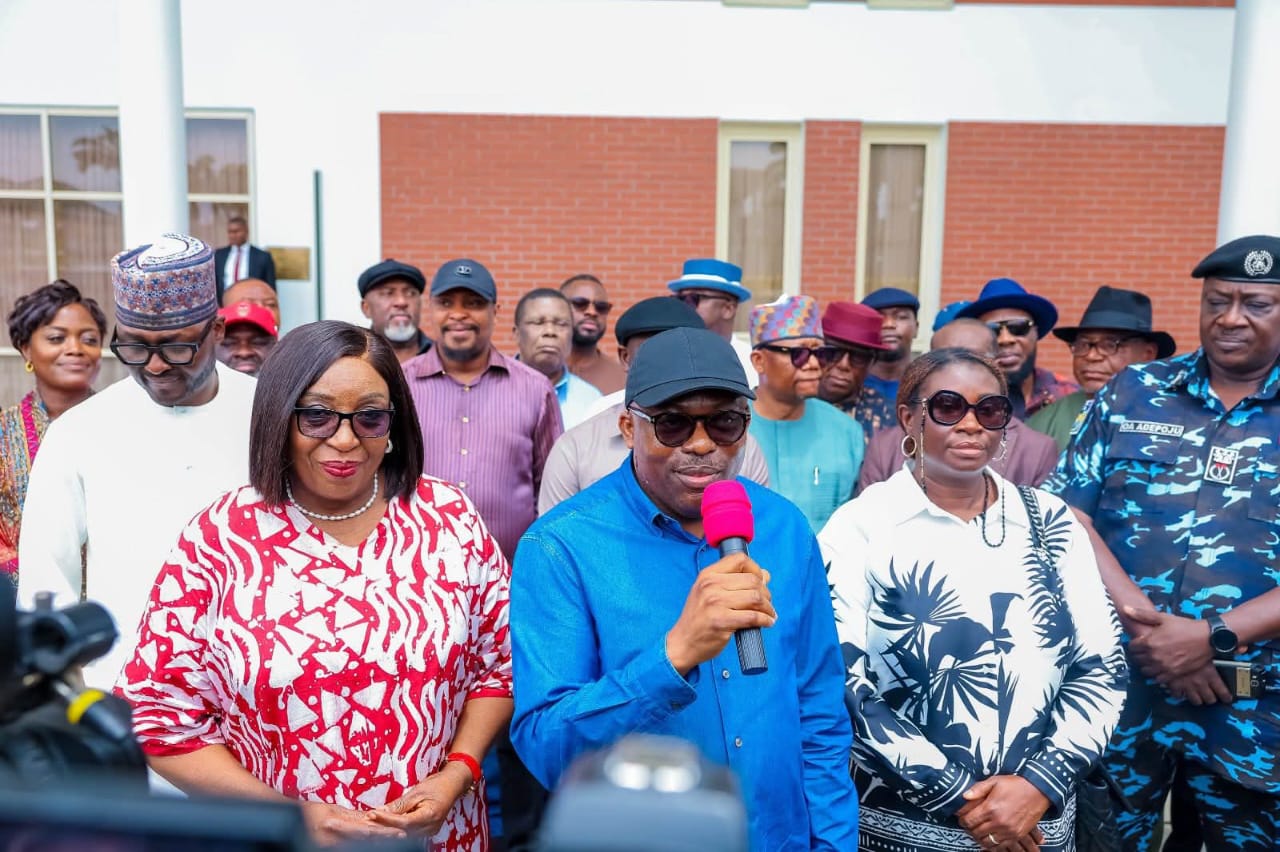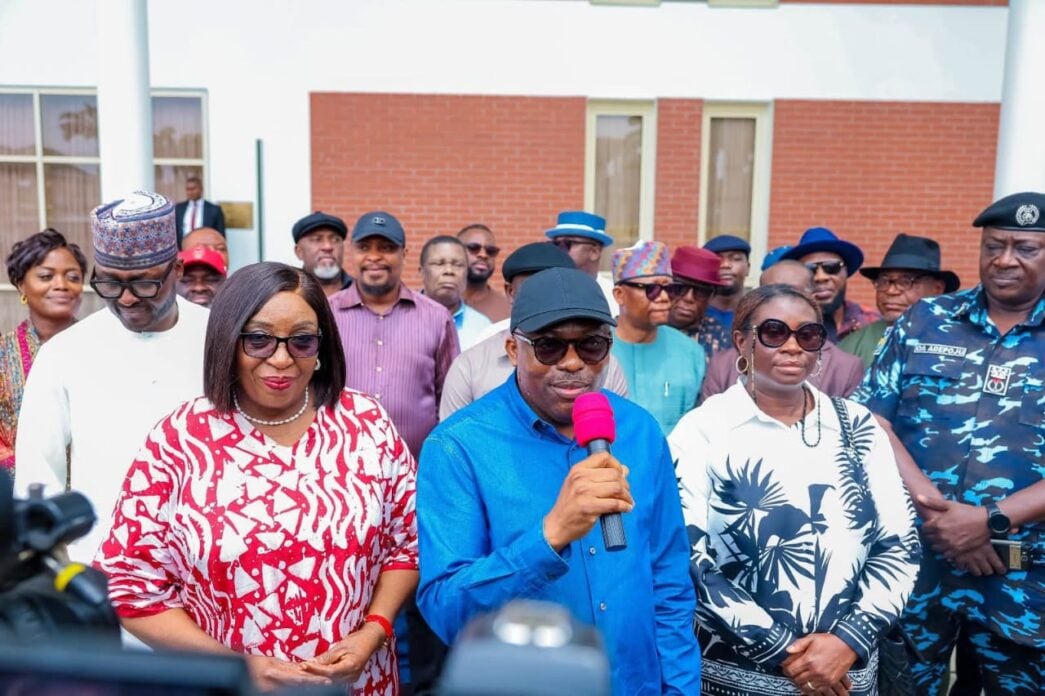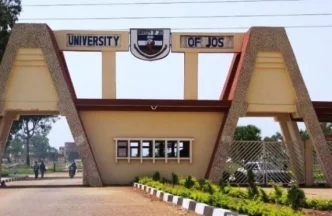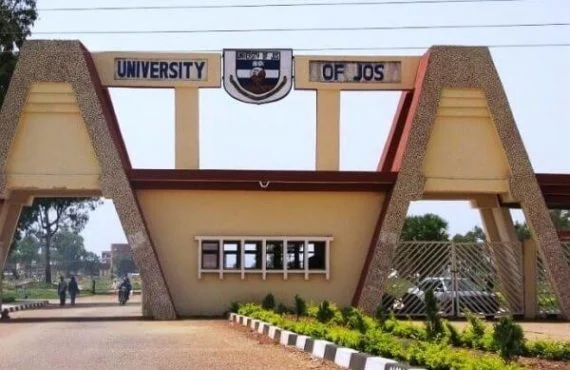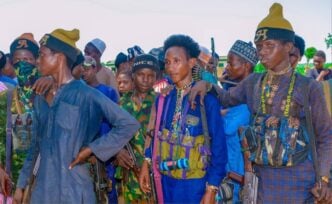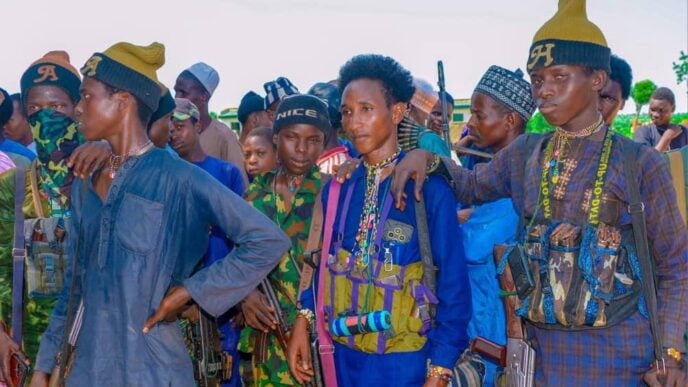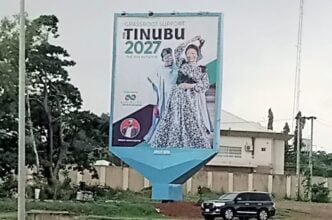Governor Siminalayi Fubara at the Rivers government house
BY LEKAN OLAYIWOLA
The declaration of a state of emergency in Rivers State in March 2025 was justified as a constitutional response to a political deadlock. Though legally defensible, the move felt emotionally corrosive to ordinary citizens in Port Harcourt, Bonny, and Ogoni villages whose voices seemed silenced.
Federalism, which should have been a shield, became a reminder of distance. What was on trial was not simply the governor’s mandate or the assembly’s quarrels, but the very meaning of statehood in Nigeria’s democratic experiment.
They cut to the core of federalism’s promise that states should not merely be outposts of Abuja, but living spaces where citizens can see themselves represented. It wasn’t about law alone, but about dignity—whether Nigerians can trust their federal compact to safeguard both order and belonging.
Advertisement
A Comparative Lens: Emergency Rule Since 1999
The Rivers intervention is not an isolated episode. Nigeria has turned to emergency powers before, though in markedly different contexts.
In Plateau state (2004), emergency rule was invoked due to the ethno-religious violence that consumed Jos and its environs. The justification was to restore security in a state spiralling into bloodshed.
Advertisement
In Ekiti state (2006), political infighting led to governance paralysis. Again, the governor and legislature were suspended. Here, the motive was less about violence than about resolving elite conflict that made state institutions unworkable.
In Borno, Yobe, and Adamawa (2013), state emergency was declared in response to Boko Haram’s insurgency. Unlike Plateau and Ekiti, governors remained in office, reflecting an attempt to balance constitutional continuity with extraordinary powers.
What makes Rivers 2025 different is twofold. First, its origin was political, not insurgent or sectarian violence. The crisis was an executive-legislative impasse that spiralled into institutional paralysis.
Second, it was the first case where all elected officials were suspended while the judiciary was preserved. This hybrid approach blurred lines: was it about enforcing federal order or about protecting civic trust?
Advertisement
The answer lies in its impact. While Plateau’s toll was measured in lives lost, and Borno’s in villages razed, Rivers’ toll was measured in dignity deferred. Projects were stalled, wages delayed, and citizens silenced not by guns, but by the suspension of representation.
Governance Interrupted, Civic Life Paused
For civil servants in Port Harcourt ministries, the emergency meant confusion. Files that required assembly approval piled up. Contractors waited months for projects to be certified. Local councils, accustomed to political direction, functioned on autopilot. The machinery of governance did not stop, but it sputtered.
Teachers in secondary schools across Obio/Akpor complained of late salaries. Market women in Mile One spoke of levies still being collected, but no improvements in sanitation or drainage. Fishermen in Andoni lamented that promised subsidies were frozen.
Advertisement
The sense was not of outright collapse, but of a slow bleed; an erosion of trust that made citizens wonder whether governance was still for them or simply happening over them.
In this sense, Rivers revealed a dimension of federalism rarely discussed: its emotional infrastructure. People were not merely asking about constitutional propriety; they were asking whether their dignity counted when political elites fought.
Advertisement
The Emotional Terrain of Federalism
The language used during the six months of emergency rule carried its own weight. Federal statements framed the intervention as a “stabilising measure.” Editorials in national dailies debated its constitutionality, often in detached legal terms. Yet in local radio and community meetings, the words were rawer: “silencing,” “humiliation,” “abandonment.”
Advertisement
This divergence matters. Federalism is not sustained only by constitutions but by the perception of whether citizens feel seen. In Rivers, many felt invisible. Abuja spoke the language of order; locals lived in the silence of exclusion.
What emerged was a double erosion: governance lost momentum, and civic dignity lost recognition. The road to repairing this rupture lies not only in restoring assemblies or governors, but in cultivating language that affirms citizens as participants rather than pawns.
Advertisement
What Makes Rivers a Game-Changer?
Rivers is more than another entry in Nigeria’s emergency rule ledger. It represents a new category: emergency as a response to political impasse, rather than to violence or insurgency. This shift is profound. It suggests that Nigeria’s federalism is now vulnerable not only to insecurity but to elite dysfunction.
It also redefines what we mean by civic toll. No mass graves marked Rivers’ emergency. Instead, its wounds were bureaucratic and emotional: muted participation, deferred dignity, and the chilling precedent that political deadlock can erase representation.
If Nigeria learns from Rivers, it could become a watershed moment, an invitation to rethink federalism not as a vertical hierarchy of authority, but as a relational covenant grounded in trust. If ignored, however, Rivers risks becoming a dangerous precedent: that silencing politics is an acceptable substitute for resolving it.
Toward Restorative Federalism
What would a restorative approach to federalism look like in practice? Three lessons emerge from Rivers:
Emergency powers may restore order, but they cannot restore trust. Federal interventions should be accompanied by robust mediation mechanisms that involve civil society, traditional leaders, and community representatives, not just politicians.
Relationships bind Nigerians together better than constitutional clauses. Communication must be empathetic, not merely legalistic. To reassure citizens that interventions are made for them, not against them, the politicians must cultivate a vocabulary of recognition.
The lifting of emergency rule should not be treated as closure but as the beginning of civic restoration: town halls, reconciliatory processes, and a deliberate effort to reintegrate silenced voices into governance.
Lessons for Post-Conflict Restorative Justice
The Rivers episode resonates with broader questions of restorative justice. Post-conflict societies around the world, from Sierra Leone to Colombia, have shown that rebuilding institutions without rebuilding dignity is insufficient. Nigeria’s federalism faces a similar truth: order enforced from above cannot substitute for trust cultivated from below.
In this sense, Rivers is both a warning and an opportunity. It warns of the fragility of Nigeria’s democratic compact when politics is reduced to power struggles. But it also offers an opportunity: to articulate a new lexicon of governance rooted in empathy, recognition, and civic repair.
As Rivers returns to civilian governance, the deeper question is what Nigeria will do with this moment. Will emergency powers become a recurring crutch, normalising the suspension of representation whenever elites clash?
Or will Rivers be remembered as the point at which Nigeria reimagined federalism not as control but as covenant?
Lekan Olayiwola is a peace & conflict researcher/policy analyst. He can be reached via [email protected]
Views expressed by contributors are strictly personal and not of TheCable.
